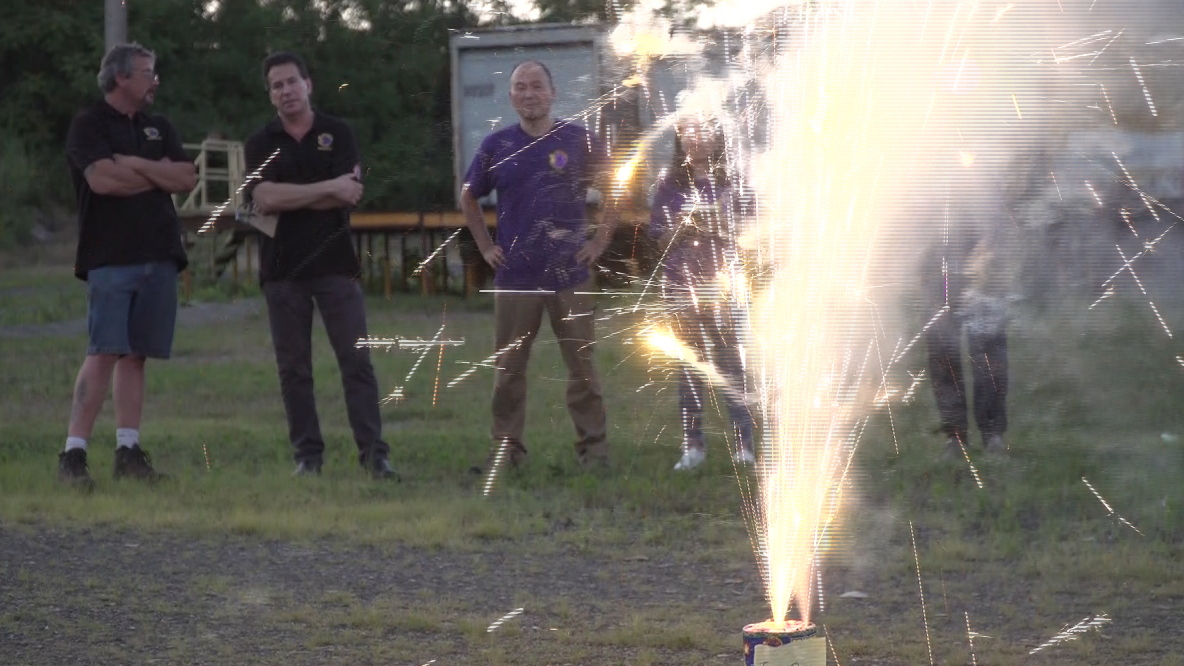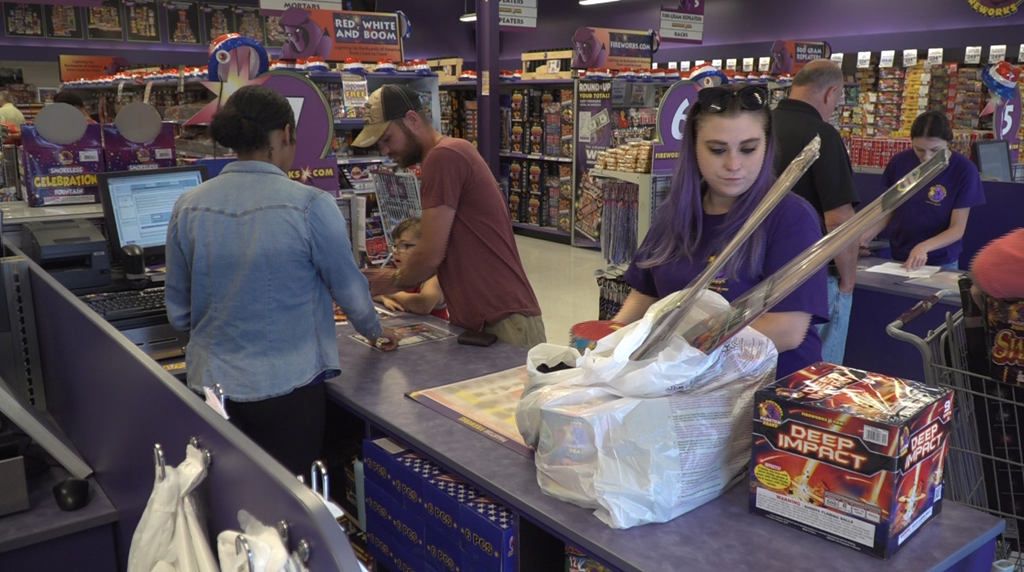

Fireworks testers examine the latest products in Ohio, U.S. /CGTN Photo
July 4 weekend means many things to many people. For some, it is a celebration of the United States' independence. For others, it is a time for family, parades, baseball and… fireworks.
The commercial fireworks industry is worth 945 million U.S. dollars in America alone.
The majority of that revenue comes around July 4. "During a six-week period, we do about 90 percent of our business," said William Weimer, the vice-president of Phantom Fireworks.
Based in Youngstown, Ohio, the company has grown from selling sparklers from the back of a car to a nationwide retailer with some 79 stores.
Weimer, along with the rest of the firework industry, is worried about tariffs. The trade dispute between China and the U.S. had threatened penalties of 25 percent imposed on fireworks imported from China. Although that tariff threat was recently avoided, following the decision by the U.S. and China to resume trade talks, concerns remain, with U.S. retailers unable to do much about it. "The Chinese are the people who have developed fireworks," said Weimer. "They have developed the innovations in fireworks. There is no other country that could possibly match the expertise and experience. Not only can't we find an alternate supply to China, we are not interested in finding an alternate supply to China."

A 79 Phantom Fireworks store in Ohio, U.S. /CGTN Photo
So what would happen if tariffs were to be imposed? Weimer said it would quickly impact sales. "We can possibly absorb a couple of percent but we are going to pass on at least 20 percent of the 25 percent tariff to our customers. And the customers are going to react very negatively. They are going to buy less. Our business would go down…It would be disastrous."
Walking around the shop in Youngstown, CGTN reporter spoke to a few customers. They agreed that if the tariff on fireworks is imposed, it would have an impact. "Cut it back 25 percent, you wouldn't spend a thousand bucks. You would spend 750... cause you would have to spend tax of 250 bucks," said one customer, who was busily buying a cart-full of fireworks for July 4.
Weimer said a tariff on fireworks is a tariff on consumers and retailers. "There is not one manufacturer in the U.S., of consumer fireworks in the U.S. Not one. So there is no internal domestic production of consumer fireworks to protect. The tariff would in effect simply be a tax paid by the American consumers and the importers."
With China and the U.S. set to resume trade negotiations, fireworks retailers are hopeful the tariff issue is behind them. But until a trade deal has been confirmed, a few in the industry are getting carried away. "We may be in remission but we haven't found the cure yet. So we need the cure to eliminate the threat of this tariff. Until there is an absolute agreement between the two countries this threat is looming over us and it is a very insecure feeling," Weimer added.
The signs are promising for an explosive July 4 fireworks sales period. But concerns remain, that the industry could fizzle out if the tariff threat returns.

Copyright © 2018 CGTN. Beijing ICP prepared NO.16065310-3
Copyright © 2018 CGTN. Beijing ICP prepared NO.16065310-3